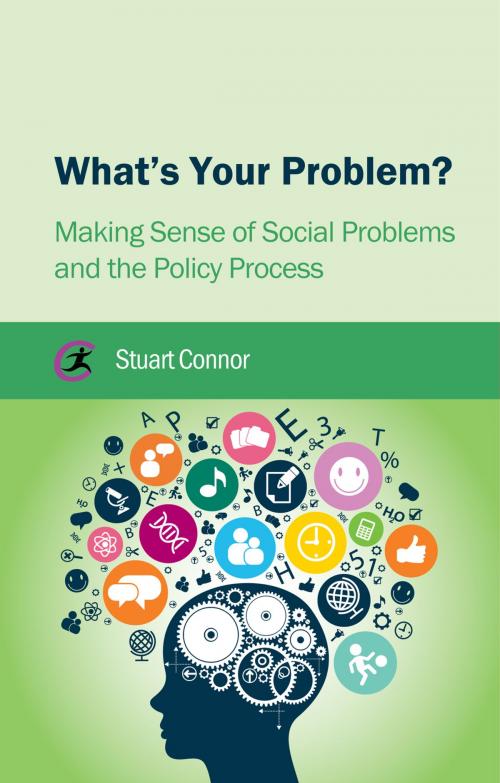What's Your Problem?
Making Sense of Social Problems and the Policy Process
Nonfiction, Social & Cultural Studies, Social Science, Social Work, Political Science, Government, Social Policy| Author: | Stuart Connor | ISBN: | 9781909330511 |
| Publisher: | Critical Publishing | Publication: | September 2, 2013 |
| Imprint: | Critical Publishing | Language: | English |
| Author: | Stuart Connor |
| ISBN: | 9781909330511 |
| Publisher: | Critical Publishing |
| Publication: | September 2, 2013 |
| Imprint: | Critical Publishing |
| Language: | English |
This lively book provides an essential introduction to the critical analysis of social problems and the policy process. It argues that policy does not just have an impact of people’s lives, but that people can and should have an impact on policy.
Rather than assuming that social policies reflect an inevitable response to pre-existing givens, the author adopts a more proactive position to show how a ‘problem’ is fabricated and how a particular response to a ‘problem’ is legitimated. He goes on to demonstrate how the struggle over the meaning and desirable response to a range of social issues continues to take place not only in Parliament, but across broadcast and print media and the numerous internet channels. The book provides students, practitioners and activists with a rationale for and means to read, write and perform policy analysis.
Drawing on the notion of policy literacy, readers will be introduced to a range of resources to enable them to further develop the ability to both read (comprehend), write (create, design, produce) and perform (influence and shape) policies. The book is illustrated throughout with examples from historical and contemporary representations of social problems and local, national and global policy making and practice. Each section will make reference to a toolkit that tutors, student and activists can access to help inform their practice.
Presented in an accessible format, the book demonstrates that making sense of social issues and the policy process, also means making sense of some of the fundamental questions, values and assumptions of how is / should society be organised and our own role in the shaping of society. In this way the book not only provides practical and critical insights into the policy process, but is also an intellectually challenging and stimulating read.
This lively book provides an essential introduction to the critical analysis of social problems and the policy process. It argues that policy does not just have an impact of people’s lives, but that people can and should have an impact on policy.
Rather than assuming that social policies reflect an inevitable response to pre-existing givens, the author adopts a more proactive position to show how a ‘problem’ is fabricated and how a particular response to a ‘problem’ is legitimated. He goes on to demonstrate how the struggle over the meaning and desirable response to a range of social issues continues to take place not only in Parliament, but across broadcast and print media and the numerous internet channels. The book provides students, practitioners and activists with a rationale for and means to read, write and perform policy analysis.
Drawing on the notion of policy literacy, readers will be introduced to a range of resources to enable them to further develop the ability to both read (comprehend), write (create, design, produce) and perform (influence and shape) policies. The book is illustrated throughout with examples from historical and contemporary representations of social problems and local, national and global policy making and practice. Each section will make reference to a toolkit that tutors, student and activists can access to help inform their practice.
Presented in an accessible format, the book demonstrates that making sense of social issues and the policy process, also means making sense of some of the fundamental questions, values and assumptions of how is / should society be organised and our own role in the shaping of society. In this way the book not only provides practical and critical insights into the policy process, but is also an intellectually challenging and stimulating read.















